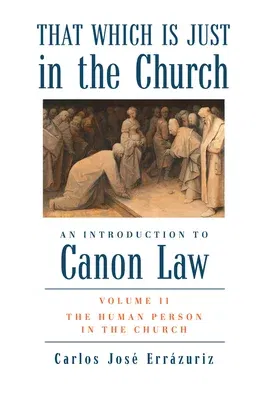Volume one of Prof. Carlos J. Errázuriz's monumental treatment of canon
law establishes that law in the Catholic Church is properly understood
as that which is just. In the second volume, he moves to the foremost
protagonist in this arena--namely, the human person. The human person is
the primary holder of rights and obligations in the Church, destined for
the salvation merited by Christ. The salvific goods constituted by the
Word of God and the sacraments are fundamental aspects of juridical
relationships and life in the Church.
Being subject to law, Errázuriz observes, does not undermine the freedom
and dignity of the person. Rather, ecclesial law intends to confront the
human person with his true supernatural inheritance, while preserving
him in the mystery of communion within which the Church herself exists.
Indeed, the human person has both natural and supernatural dignity, and
likewise responsibilities that bear upon the seen and unseen realms of
communion.
Prof. Errázuriz examines the practical applications of personhood and
law, as well as the perspectives of the human subject that derive from
his ontological status. This is further drawn across various states of
life that occur within the Church and the differing juridical relations
encountered. Also considered is the nature of association in the Church,
and Errázuriz breaks down the concepts and particular realities
pertaining to this natural tendency and the legal discipline.

